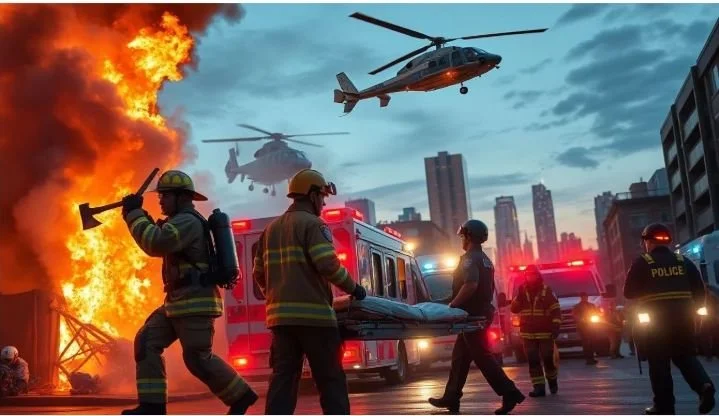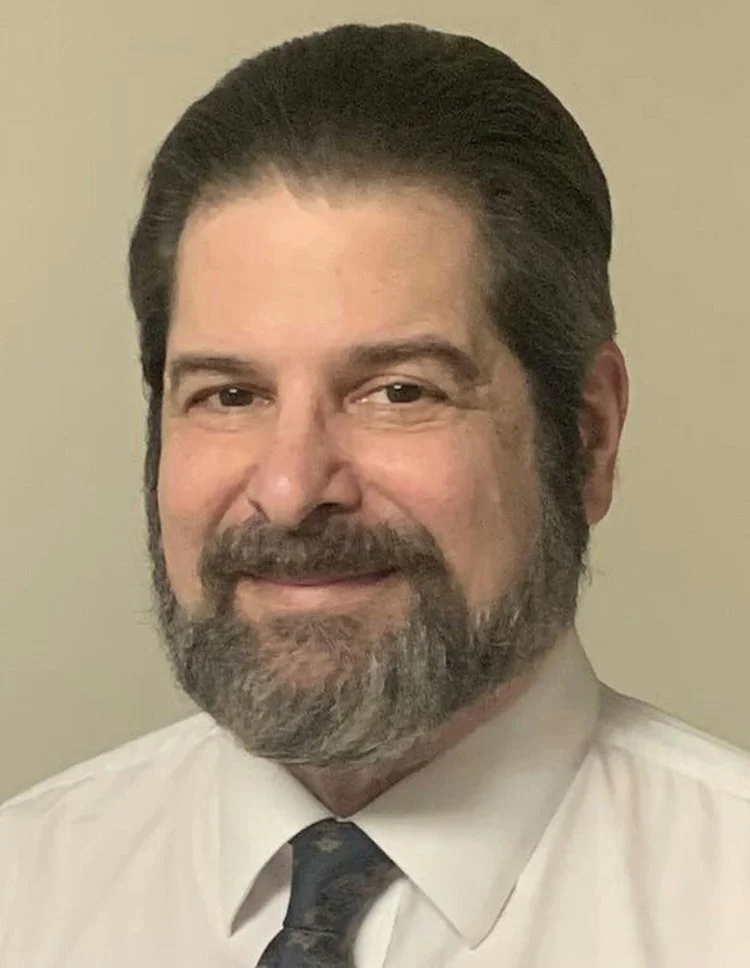THE CALLING: Exploring First Responder Career Paths
/By: Joel E. Gordon
First responders are the backbone of emergency services. They rush into chaos to save lives, protect property, and keep communities safe. As demand for these vital roles grows, so do chances for careers in emergency response.
First responders are trained professionals like police officers, firefighters, paramedics, and EMTs. They are the first on the scene during accidents, disasters, or crimes. Their main job is to provide immediate help, secure the area, and start the rescue process. Each role has different tasks, but all share the goal of quick, effective action.
Every year, millions of emergency incidents happen across the country. Response time can make a big difference—sometimes saving lives or preventing injuries. For example, a firefighter extinguishing a house fire or an EMT stabilizing a patient can change everything. Their work is often unseen but absolutely essential.
First responders need a mix of physical, mental, and technical skills. Sharp communication, quick thinking, and teamwork are a must. These skills readily transfer into further career growth as in the case of a trained paramedic becoming an RN as field work becomes more prohibitive as the individuals aging process takes hold. Educational requirements vary: most roles need high school diplomas or GEDs, plus specialized certifications. Strong problem-solving abilities and emotional resilience are just as important as physical fitness.
Camaraderie among first responders can be second to none. During times of trials and tribulations the support, care, and understanding of fellow first responders can make a huge difference when undergoing difficulties being dealing with critical medical conditions or otherwise in our own personal lives.
Career Paths in First Response
●Police Officer
Police officers are tasked with law enforcement, community safety, and crime prevention. Many police departments offer specialized units like K-9, cybercrime, or SWAT teams. Career growth often involves promotions to sergeant, lieutenant, or even higher roles like chief. Continuous training helps officers handle evolving challenges.
●Firefighter
Firefighters fight fires, perform rescues, and provide emergency medical aid. They often work in shifts to ensure 24/7 coverage. Advancement might include roles in fire inspection, training, or hazardous materials teams. Becoming a fire captain or fire chief is a common next step.
●Emergency Medical Services (EMS) Personnel
EMTs and paramedics respond to medical emergencies outside hospitals. Starting as an EMT is typical, then moving up to advanced paramedic roles or EMS supervisor positions. Many EMS professionals also choose to specialize in areas like EMS education or management.
●Specializations and Support Roles
Beyond core responder jobs, there are support roles like dispatchers who coordinate responses or communication specialists who operate emergency radios. Search and rescue teams, disaster response units, tactical law enforcement, and bomb squads are specialized fields requiring additional skills and training.
Most jobs in emergency services demand certain basics: age limits (usually 18+), background checks, and physical fitness tests. Candidates must also pass written exams and drug tests. Certifications like CPR and first aid are often mandatory from the start.
Attending police or fire academies is common for initial training. On-the-job training helps new hires adapt quickly. Continuing education keeps skills fresh and up-to-date. Many agencies endorse courses on advanced medical procedures or crisis management.
Local governments often fund training programs for first responders. Scholarships and grants are available, especially for those committed to long-term careers. Some employers even cover training costs after hiring, so researching available resources can reduce financial barriers.
Starting as an entry-level responder is just the beginning. Many move into supervisory roles, specialized units, or become trainers themselves. Careers in emergency management or public safety administration are also options for those ready to lead.
Keeping skills current is key. Certifications like Advanced EMT, Hazardous Materials Technician, or Incident Command System boost employability. Attending workshops and courses improves expertise and prepares responders for bigger responsibilities and future endeavors.
Experts say that career growth in this field often depends on dedication and lifelong learning. Stories of first responders who started at the bottom and now lead teams or manage entire departments are common. These roles bring a deep sense of pride and community impact.
The job is physically demanding, and responders face danger during every call. Emotional stress from traumatic scenes can take a toll. Odd hours, night shifts, and unpredictable schedules add to the challenge, making mental health and self-care vital.
Despite hardships, many find their career deeply rewarding. Saving lives, helping communities, and making a difference bring unmatched satisfaction. Personal growth, new skills, and camaraderie often result from this line of work.
First responder careers come with a wide range of options—from police and fire to EMS and beyond. Proper training and continuous education are keys to success and advancement. If you’re drawn to helping others and thrive under pressure, this field offers a fulfilling path. Exploring these opportunities might just lead you to your life's most meaningful work and a chance to make a real difference in the world out in the field and even later in a career path of service.
Joel E. Gordon, BLUE Magazine’s Editor-in-Chief, is a former Field Training Officer with the Baltimore City Police Department and is a past Chief of Police for the city of Kingwood, West Virginia. He has also served as vice-chair of a multi-jurisdictional regional narcotics task force. An award winning journalist, he is author of the book Still Seeking Justice: One Officer's Story and founded the Facebook group Police Authors Seeking Justice. Look him up at stillseekingjustice.com









